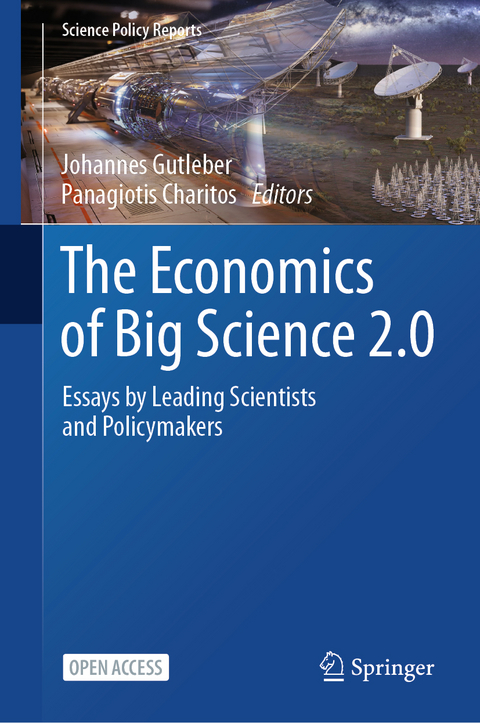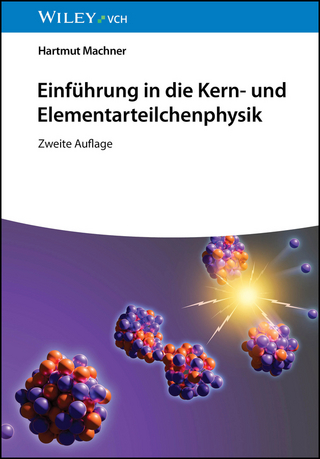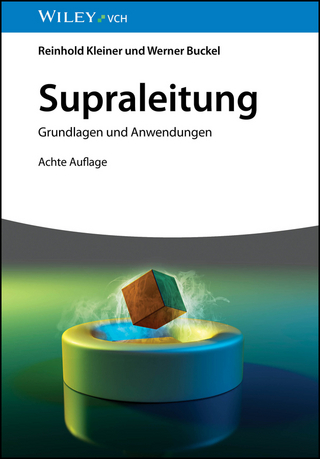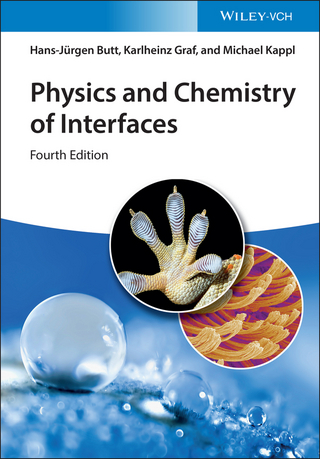
The Economics of Big Science 2.0
Springer International Publishing (Verlag)
978-3-031-60930-5 (ISBN)
The second volume of open access essays builds upon the success of the initial installment, "The Economics of Big Science (© 2021, 978-3-030-52390-9, Open Access book as well)," delving deeper into the tangible socio-economic value generated by fundamental science missions and elucidating the various ways in which this benefit is realized. This collection showcases contributions that stem from socio-economic impact studies conducted on the activities of Research Infrastructures. These studies were presented and discussed by the authors during a dedicated session on the "Economics of Big Science" at the headquarters of the European Space Agency (ESA) in Paris in May 2023, organized by EIROforum.
The authors, affiliated with prominent universities, research centers, and international research organizations, actively contribute to an international collaborative effort. Their aim is to develop strategies and policies that ensure fundamental scientific research in Europe translates into tangible and sustainable societal and economic benefits. This volume is intended to be a valuable resource for policymakers, funding agencies, scientists, and academics across diverse domains. It serves as a comprehensive reference for the evidence of socio-economic impact stemming from fundamental scientific research within Open Science, Research, and Innovation environments. Moreover, it equips stakeholders with evidence supporting the effectiveness of impact analysis and facilitates the design of best practices in this regard.
Johannes Gutleber develops strategies and sustainable implementation scenarios for future research infrastructure projects at CERN. He coordinates CERN's implementation studies with its host states, France and Switzerland. In the frame of this work, he leads socio-economic studies, an integral part of CERN's future project developments, to identify new tools for measuring and optimizing the different types of societal benefits that stem from investments in large-scale research infrastructures.
Before the launch of the FCC study in 2014, he conceived and managed the implementation of a number of key systems for the MedAustron particle-accelerator-based cancer treatment facility. The project was developed as a cooperation between Austria and CERN. It is considered as an example of knowledge transfer from fundamental scientific research to societal applications. Between 1997 and 2008 he developed the online software systems of the Compact Muon Solenoid (CMS), one of the two large experiments at the Large Hadron Collider (LHC). This was one of the mission-critical subsystems of the experiment that enabled scientists to carry out their scientific research that led to the experimental verification of the Higgs boson. He holds a doctorate degree and a diploma engineering degree from the Technical University Vienna, Austria in technical sciences and in computer science.
Panos Charitos holds a bachelor in Physics and a master degree in Astrophysics from Imperial College London and a MSc in Media and Communications from the London School of Economics. His studies in media and sociology led him to study for a MA and a PhD in Social Sciences. He joined CERN in 2011 as a member of the ALICE experiment Since 2013 he has served as co-editor of CERN's Physics Department. In 2015, Panos was appointed Chairperson of the Future Circular Collider communication network and Chief-Editor for Accelerating News and CERN's EP Newsletter. In 2020 he was appointed member of the Editorial Board of the Journal of Cultural Analysis and Social Change. Previously, Panos had worked for major media outlets in Greece and the UK. In parallel his extensive experience in the publishing industry led to the foundation of ROPI Publications, a niche publishing house specializing in the history and philosophy of science.
Socio Economic Impact Assessment of ESA Programmes.- Observation, Analysis and Evaluation of the Industrial Contribution to the Peer Reviewed Public Access of the ESRF: A Pilot Study.- Large scale research infrastructures contributions to local economy: A pilot survey.- The value of Open Science at CERN: An analysis based on a travel cost model.- The regional impact of single site and distributed research infrastructures using the example of DORIS and CTAO.- Social Licence to Operate: A Critical Success Factor in Realising Impact from Research Infrastructure.- Awareness and attitudes towards science. The case of CERN.- Thinking how to define and measure impacts of RIs.- Costs and benefits of Open Science: contributing to developing a rigorous assessment framework.- From science to society: the Open Science & Innovation & Network approach.- How to measure the local economic impact of Large Research Infrastructure procurement.- From the National Laboratory to International Collaborations (Framing Big Science for the Age of Science Diplomacy).- Estimating the FCC'S short-term Impact on Value Added and Employment - an Input Output Analysis.- The value of a collaborative platform in a global project.- The value of an open scientific data and documentation platform in a global project: The case of Zenodo.
| Erscheinungsdatum | 13.09.2024 |
|---|---|
| Reihe/Serie | Science Policy Reports |
| Zusatzinfo | XVII, 211 p. 81 illus., 74 illus. in color. |
| Verlagsort | Cham |
| Sprache | englisch |
| Maße | 155 x 235 mm |
| Themenwelt | Naturwissenschaften ► Physik / Astronomie ► Atom- / Kern- / Molekularphysik |
| Schlagworte | Benefits from fundamental research • Big science projects finance/ costs • Cost of large-scale scientific projects • Designing research infrastructures • Future Circular Collider (FCC) • Investing in fundamental science • Measuring socio-economic impact of science • open access • Societal benefits / value of science |
| ISBN-10 | 3-031-60930-1 / 3031609301 |
| ISBN-13 | 978-3-031-60930-5 / 9783031609305 |
| Zustand | Neuware |
| Haben Sie eine Frage zum Produkt? |
aus dem Bereich


